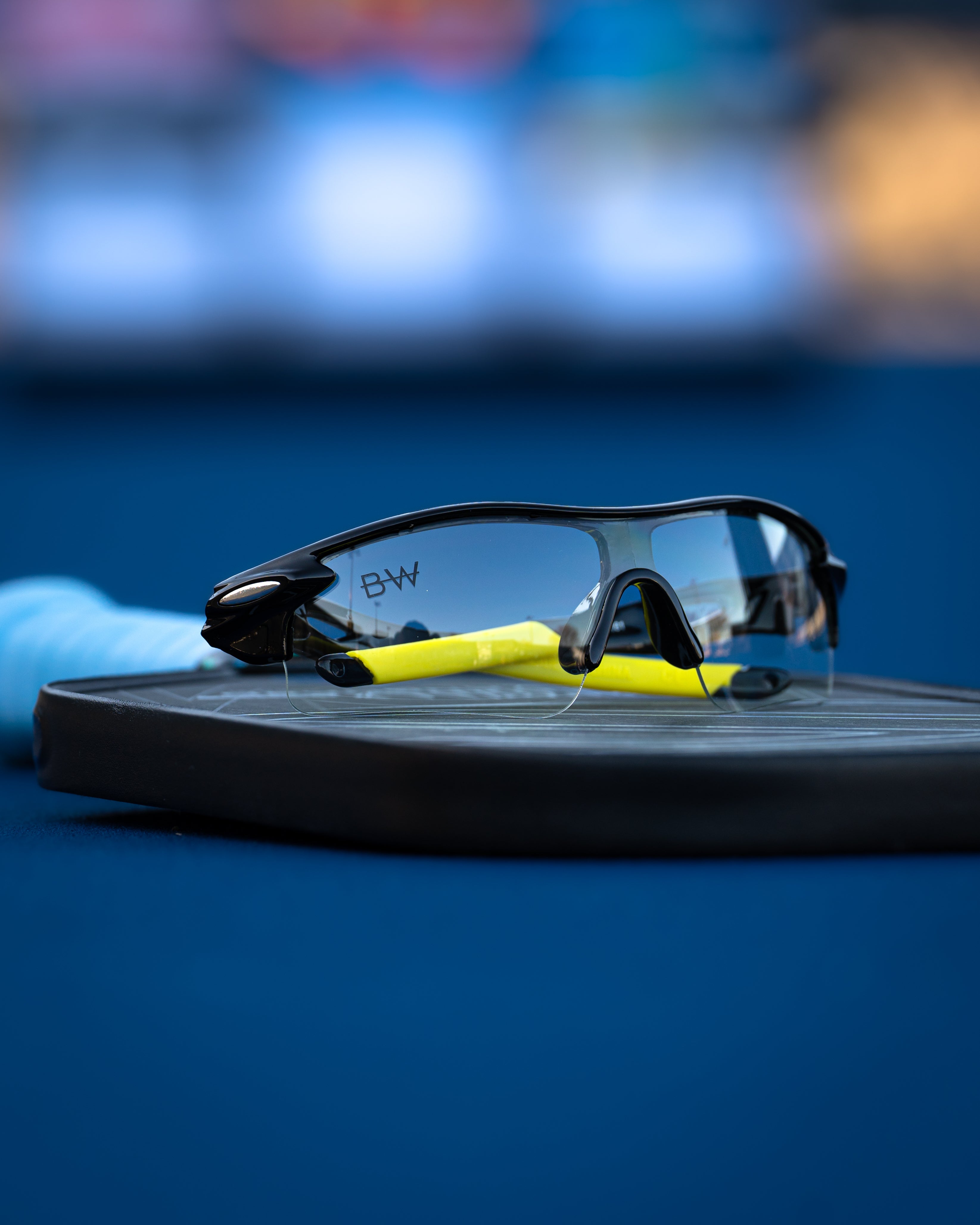Do You Need Polarized Sunglasses for Sports? What Athletes Must Know in 2025
Share
When it comes to sports eyewear, the choice between polarized and non-polarized lenses can significantly impact your performance. While polarized lenses are known for reducing glare, they may not always be the best option for athletes. Understanding the differences is crucial to making an informed decision.
Understanding Polarized Lenses
Polarized lenses contain a special filter that blocks intense reflected light, reducing glare from surfaces like water, snow, and glass. This feature is beneficial for activities like fishing or driving, where glare reduction enhances visibility.
However, in sports requiring precise depth perception and quick reactions, such as pickleball, tennis, or cycling, polarized lenses can pose challenges.
The Drawbacks of Polarized Lenses in Sports
1. Impaired Depth Perception
Polarized lenses can distort depth perception, making it harder to judge distances accurately. This distortion can be detrimental in fast-paced sports where split-second decisions are crucial. Athletes have reported difficulties tracking balls and judging distances when wearing polarized lenses.
2. Reduced Screen Visibility
Polarized lenses can interfere with the visibility of LCD and LED screens, such as those on smartphones, GPS devices, and fitness trackers. This can be problematic for athletes who rely on these devices during training or competition.
3. Limited Use in Low-Light Conditions
In shaded or low-light environments, polarized lenses may reduce overall visibility, making it harder to see obstacles or changes in terrain. This can be a safety concern for athletes engaging in activities like trail running or mountain biking.
Advantages of Non-Polarized Sports Sunglasses
Non-polarized lenses offer several benefits that make them a preferred choice for many athletes:
-
Consistent Depth Perception: They maintain natural depth cues, essential for sports requiring precise spatial awareness.
-
Uninterrupted Screen Visibility: Non-polarized lenses do not interfere with digital screens, allowing athletes to monitor devices without distortion.
-
Better Performance in Variable Lighting: They provide clearer vision in changing light conditions, such as moving between sunlit and shaded areas.
-
Cost-Effective: Generally, non-polarized sunglasses are more affordable than their polarized counterparts.
Blinded Wear Co.'s Commitment to Non-Polarized Sports Eyewear
At Blinded Wear Co., we understand the unique needs of athletes. Our non-polarized sports sunglasses are designed to enhance performance without compromising on style or protection.
Featured Products:
-
Waved II Sunglasses: Combining sleek design with functional features, these sunglasses offer UV protection and a comfortable fit for various sports.
-
SparkFire Pickleball Sunglasses: Specifically crafted for pickleball players, these sunglasses provide clarity and comfort on the court.
Explore our full range of Pickleball Sunglasses to find the perfect pair for your game.
Expert Insights on Polarized vs. Non-Polarized Lenses
Optometrists and vision experts have weighed in on the debate between polarized and non-polarized lenses:
"Polarized lenses can reduce glare but may interfere with depth perception and screen visibility, which are crucial for athletes."
— Dr. Chris Erwin, Optometrist
This underscores the importance of choosing the right lens type based on your specific sporting needs.
Frequently Asked Questions (FAQ)
Q1: Are polarized lenses suitable for all sports?
A1: While polarized lenses are beneficial for reducing glare in activities like fishing or driving, they may not be ideal for sports requiring precise depth perception, such as tennis or pickleball.
Q2: How do non-polarized lenses improve athletic performance?
A2: Non-polarized lenses maintain natural depth cues and do not interfere with screen visibility, allowing athletes to react swiftly and monitor digital devices without distortion.
Q3: Can polarized lenses affect depth perception during athletic activities?
A3: Yes, polarized lenses can distort depth perception, making it challenging to judge distances accurately in fast-paced sports.
Q4: How do I choose the right sports sunglasses for my needs?
A4: Consider factors like the type of sport, lighting conditions, and whether you need to view digital screens. Non-polarized lenses are often recommended for sports requiring quick reactions and screen visibility.
Conclusion
While polarized sunglasses have their place in certain activities, non-polarized lenses offer distinct advantages for athletes. By preserving depth perception, ensuring screen visibility, and performing well in varied lighting conditions, non-polarized sports sunglasses are often the better choice for those seeking optimal performance.
Ready to elevate your game?
Discover the benefits of non-polarized sports eyewear with Blinded Wear Co.'s Pickleball Sunglasses Collection.
